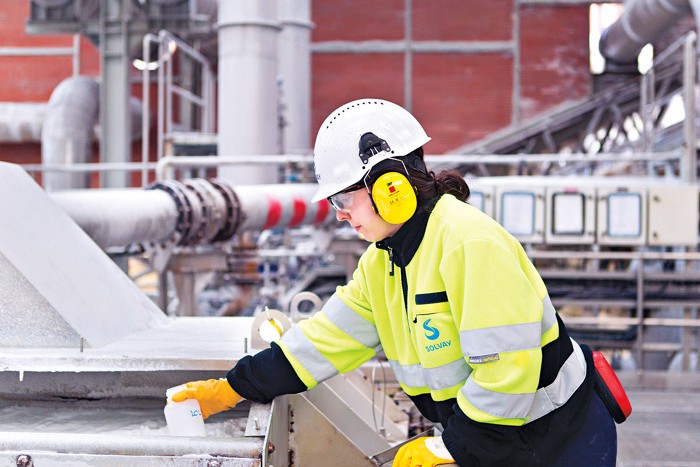Advertisement
Grab your lab coat. Let's get started
Welcome!
Welcome!
Create an account below to get 6 C&EN articles per month, receive newsletters and more - all free.
It seems this is your first time logging in online. Please enter the following information to continue.
As an ACS member you automatically get access to this site. All we need is few more details to create your reading experience.
Not you? Sign in with a different account.
Not you? Sign in with a different account.
ERROR 1
ERROR 1
ERROR 2
ERROR 2
ERROR 2
ERROR 2
ERROR 2
Password and Confirm password must match.
If you have an ACS member number, please enter it here so we can link this account to your membership. (optional)
ERROR 2
ACS values your privacy. By submitting your information, you are gaining access to C&EN and subscribing to our weekly newsletter. We use the information you provide to make your reading experience better, and we will never sell your data to third party members.
Inorganic Chemicals
Johnson Matthey may be a takeover target
Acquisitive US firm Standard Industries takes a 5% stake in the catalyst maker
by Alex Scott
May 5, 2022
| A version of this story appeared in
Volume 100, Issue 16

Standard Industries, a US industrial conglomerate, disclosed on April 29 that it has purchased about 5% of the shares in the UK catalyst and specialty chemical firm Johnson Matthey (JM). JM’s share price subsequently jumped about 15% amid speculation that Standard may look to acquire the entire company. Neither Standard nor JM would comment.
At this stage, Standard could just be making a strategic investment, says Sebastian Bray, a chemical stock analyst at Berenberg Bank. “The just-over-5% stake revealed last week seems to be a potential expression of interest rather than a serious statement of intent at this stage,” he says.
But intriguingly, last year Standard acquired the US catalyst firm W. R. Grace for $7 billion. Analysts suggest that JM could be combined with Grace into one larger company focused on catalysts.
“The technology overlap of Johnson Matthey with Standard’s acquired W. R. Grace business seems quite substantial—there could be R&D as well as cost synergies,” Bray says.
Analysts at Jefferies Group voice a similar sentiment in a note to investors. “Standard Industries, in our view, would appear to be something like an ideal owner for the JM business,” they write.
Standard’s intentions may be unknown, but what is clear is that JM is in a state of flux. In recent months it has changed CEOs, ditched its plan to be a supplier of lithium-ion battery cathode materials, and agreed to sell its pharmaceutical fine chemical business.
And although JM’s hydrogen technology business is growing rapidly, its core business in automotive catalytic converters is declining.



Join the conversation
Contact the reporter
Submit a Letter to the Editor for publication
Engage with us on Twitter